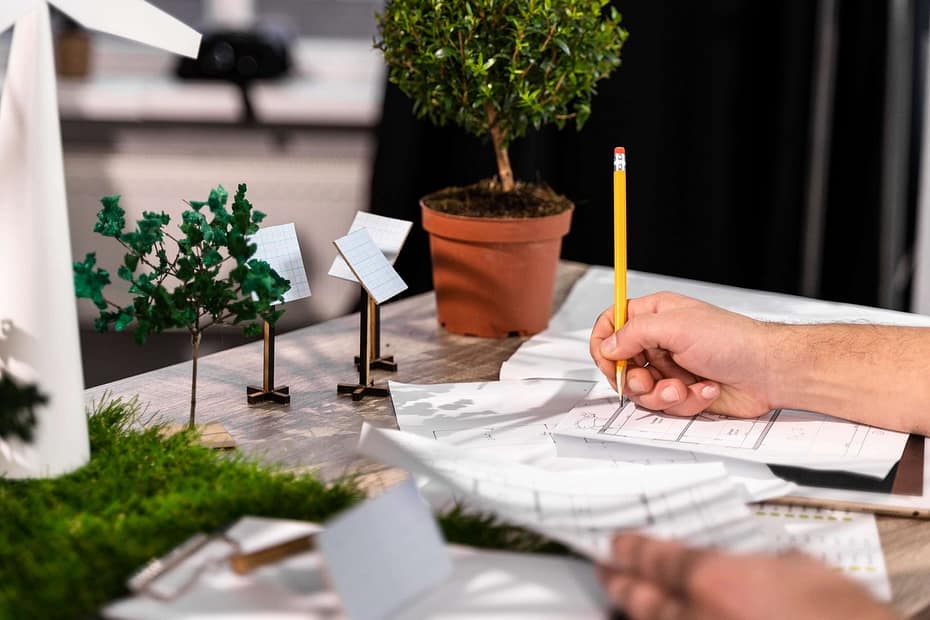In the last couple of years, there has been a surge in environmental and green topics – which is a huge success considering the signs that our outdated practices and worldviews are slowly becoming obsolete. What’s more, sustainable practices bring about tremendous financial gains – aiding them to be embedded in today’s business world. The real estate industry is no different, with sustainability at its core; it is exciting to see how the market will continue to develop based on sustainability goals and patterns Sustainability Trends.
An increasing emphasis on energy efficiency
Since the start of the COVID-19 pandemic, energy prices have sharply increased globally. In view of the extended European situation and the dwindling use of traditional fuels, this tendency can be observed for the foreseeable future. Consequently, increased energy efficiency measures in our homes will likely become more commonplace in forthcoming years. With the exponential development of smart homes and Internet of Things technology, attaining better power utilization while still delivering convenience to our daily lives is likely to be a greater focus.
The return of minimalistic design
The minimalistic design trend has made a triumphant comeback with the help of a sustainable mindset; the notion that “less is more”. What does this really mean? Fewer pieces of furniture made up of VOC components, reduced clutter and mess that results in less waste, and a decrease in the number of indoor objects to clean and vacuum. This may seem insignificant, but the collective effects achieved by implementing these changes are significant.
Sustainability requirements conquering new grounds
Jacksonville is rapidly developing into a centre for fintech and financial services, and when you search for apartments for rent in the area. You will come across a growing number of sustainable practices and concepts. Fortunately, the rise of these specialist business hubs is increasing, and the real estate market is keeping up with the influx of new tenants who are tech-savvy and opting for more sustainable options. This shift from the novel to new industry standards is often directly linked to economic and urban development.
Greater utilization of renewable energy sources
Although renewable energy technologies such as solar panels, wind turbines, and geothermal systems are not yet accessible to most middle-class households, governments are doing their best to push these technologies into the mainstream. For example, certain parts of the UK offer discounts of up to 50% on energy bills to those living near a wind farm. Such advantages and increased use of renewable energy can revolutionize local markets and infuse them with new worth. Progressively, these technologies will become widely accepted.
A more sustainable construction process
In order to gain a competitive edge in the real estate market, buildings must be designed and constructed with sustainability as a key priority from the outset. Luckily, there is an abundance of sustainable design practices that are becoming more widespread. Such as BIM modelling and eco-friendly building materials. These practices make the construction and real estate industries leaner and more efficient, and result in improved outcomes for the end-user.
Water preservation and management
Water, the foundation of all life on our planet, is receiving its due recognition in terms of conservation and management. From more basic techniques like low-flow faucets and toilets to more complex systems. Like rainwater and greywater harvesting, water preservation methods are becoming reliable and significant elements of real estate. This rise in popularity is not unconnected to the financial advantages of these systems. As successful water management can reduce your bills by up to 90%. This is something that cannot be ignored.
Green roofs and vertical gardens
Green roofs, vertical gardens, and other ideas that join urban life with traditionally rural advantages are gradually becoming more popular, as the benefits are too numerous to disregard. These additions to living spaces make them more inviting and enrich insulation, having a positive help on inhabitants’ wellbeing. Small scale urban farming is also rising quickly, thus these ideas can be pushed to the smallest imaginable scale. These inclusions can totally revamp the desirability of some properties. Sustainability Trends
The growing need for standardization and certification
In conclusion, the increasing demand for sustainable practices has caused a shift in the real estate industry. This makes it difficult to assess the sustainability of technological upgrades and trends. Fortunately, initiatives such as Energy Star and LEED ratings have been put into place to make evaluation easier. However, as more sustainable solutions become available, additional ratings systems may be needed.
Wrapping-up
We hope these couple of examples have given you an insight into the direction. It sustainable traits of society will take the real estate industry in the years to come. It is clear that sustainability is not just a passing trend. And as our resources decrease, the necessity to make houses more optimized and economical will be even greater. Developers, builders, agents, and landlords who recognise this will undoubtedly have an edge in the industry. Sustainability Trends
More on INJ Architects:

